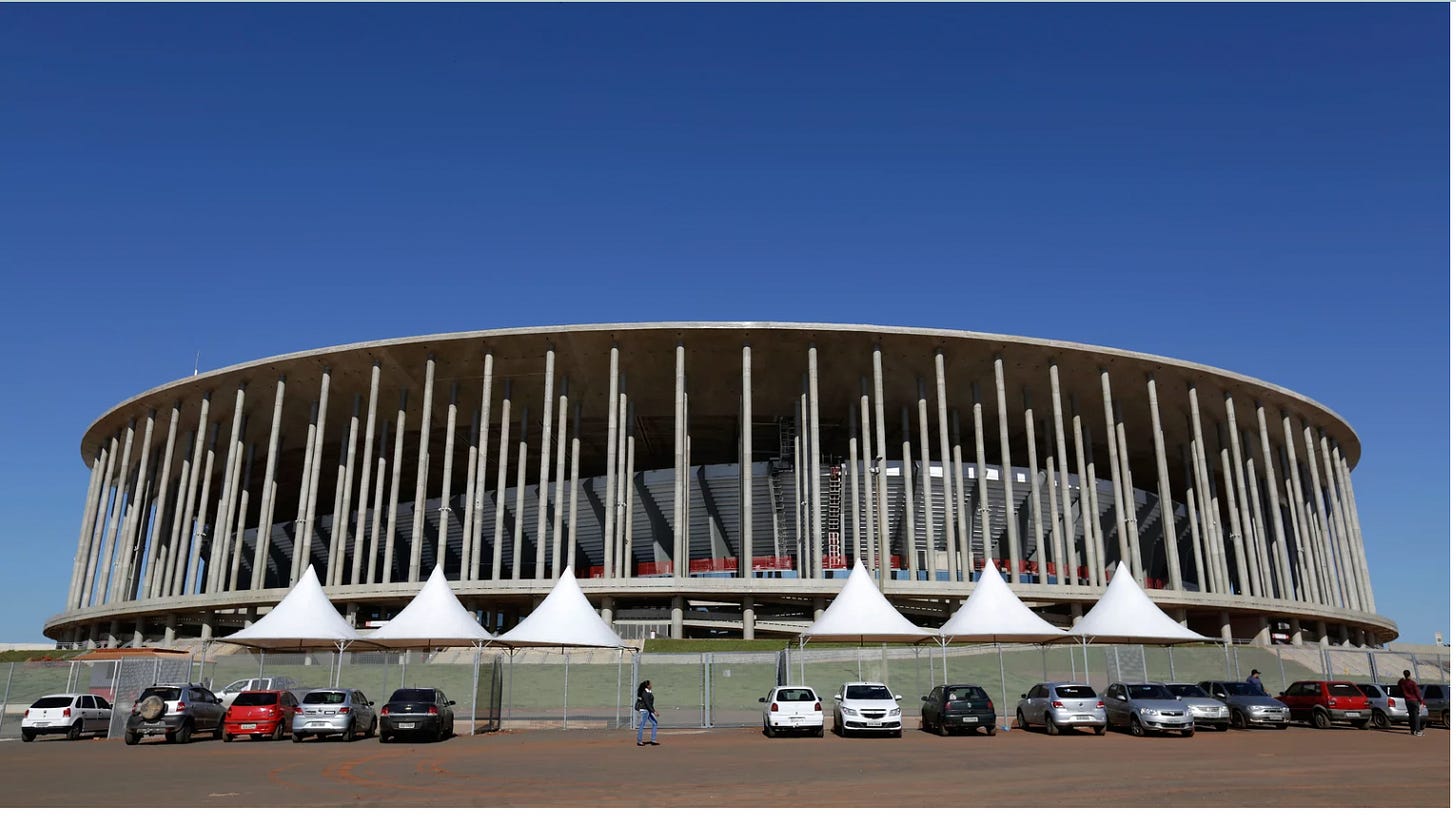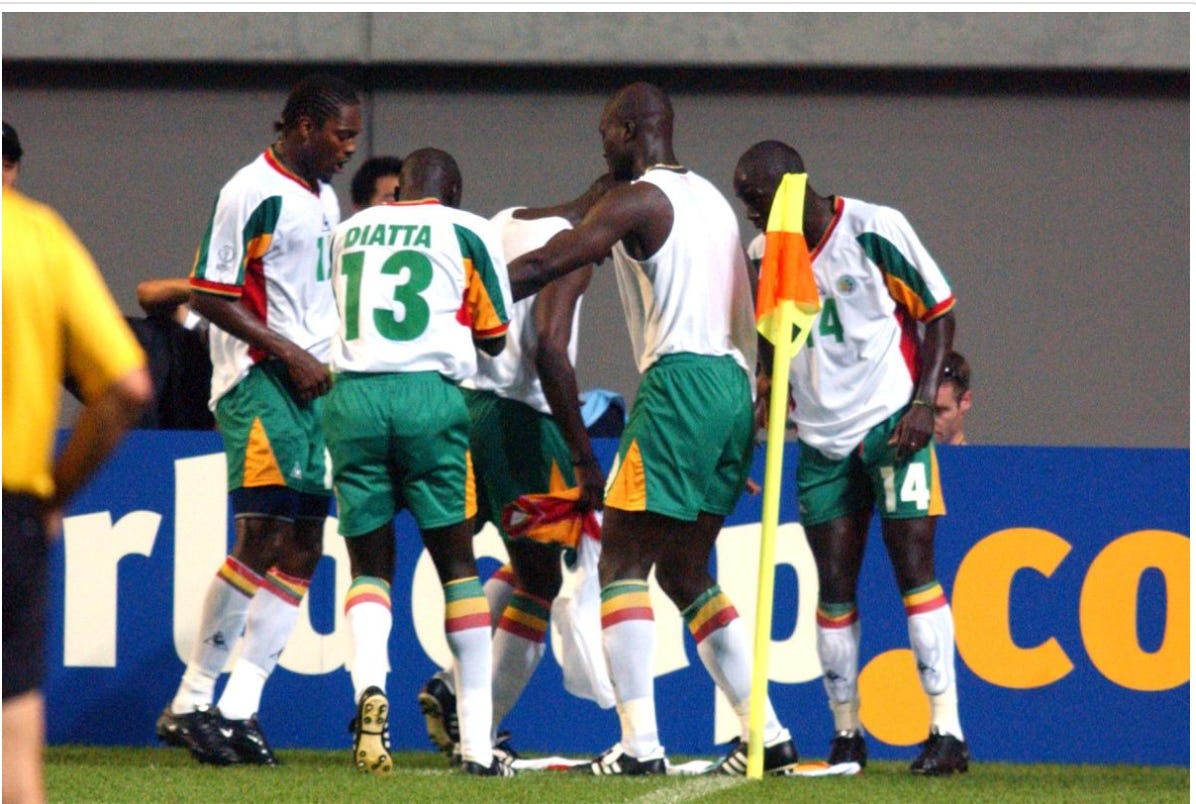FIFA WORLD CUP - should it be hosted by developing countries or developed countries
As the Qatar 2022 is upon us , let us examine where it is ideal to hold the biggest championship in Sports
The Football World Cup is upon us. The first-ever world cup hosted in an Arab nation starts on 20th November. This one is a four-year event and is without a doubt the biggest global sporting event after Olympics. From the outside, it looks like the monies are falling for the host nation.
But is the FIFA World Cup lucrative for the host nation?
There are arguments to be made for both sides. Such a big event conducted on a massive scale does have a lot of influx of funds towards the host nation. It gives a country a global platform and signals out a positive message to the market that it is truly open for business. Since its expansion to 32 teams in 1998, the World Cup has been held mostly in developed strong economies of European countries. There have been two notable exception of South Africa(2010) & Brazil(2014)
Is it really worth it to invest so much in a developing nation like South Africa and Brazil? Where such a big investment would be more worthwhile to improve other living conditions of the people. The wastage in the investment in infrastructure remains the same. The big state of art stadium built for Brazil has been converted into bus parking. There are indeed a few advantages to developing countries as the increased investment in infrastructure, improvement in public transportation, and overall better improvement of the life in the city across where the event was attended
A country with an established Sporting culture can gain benefits from such improvement in the infrastructure. The London Olympic Stadium built for the 2012 Olympics currently houses Westham United Football Club, which has leased out the stadium for rent. But in absence of the sporting culture, such infrastructure would be a pile of concrete standing tall.
The FIFA World Cup is the biggest source of revenue for FIFA, it makes money by selling TV rights, marketing, and licensing rights for the event while keeping its cost minimal. The major chunk of expenses goes to the hosting countries which have to build up state of art infrastructure to showcase the global event. The host countries are required to build stadiums, hotels, and entertainment spots along with a significant amount of investment in building roadways and improving transport facilities. Although this does attract the majority of investment in the country, the flip side remains how to utilize these resources after the World Cup is finished.
The World Cup in Brazil had an estimated 13.4 Billion spent in preparation for the event. In the course of preparation, the government has been said to have dropped some of the key infrastructure projects that were planned. There was an estimate of 2.4 billion USD spent on improving the airports, but for an average Brazilian this will not be useful as it will be to plan better roads and railways.
The opportunity cost of the event is never accounted for in any analysis. The billion-dollar investment used to upgrade the facilities can be used to develop the infrastructure within the country. Sporting infrastructure is both difficult and expensive to construct and when the taxpayer shelves out the money, questions are asked for better usage of the funds,
The boost in tourism for the host nation is often a cited example. However, that example is flawed. The boost is usually only temporary and the novelty tapers off. Besides, in the world just coming out of the pandemic, tourism is not exactly in the mind of the people. The new infrastructure built which can possibly hold tourism in the future, may not be as enhanced as projected. Tourism quickly plateaus after the event and is reliant on fans coming back. The tourists type also matters, people attending sports events are major sports buffs. They will go to lengths to support their teams and are usually sponsored by sporting associations. Such tourists will not be repeat visitors if the sporting event is not a frequent happening.
As this well-researched paper points out Mega-sports events now only increase inbound tourism by 4%, on average. The Summer Olympic Games see an increase of 18% in inbound tourism. Most events, however, have no positive impact.
Picture : The most expensive World Cup stadium — located in the capital, Brasilia, and with a price tag of $550 million — is being used as a parking lot for buses.
Developing nations hosting the World Cup does not sound like a great idea as seen both in the case of South Africa and Brazil. These countries with existent basic needs issues, when they splurge for an entertainment event are always met with protest. There is an economic argument for spending the tax money well for such countries. Developing countries are ragged in their own issues, to develop a sustainable sporting culture. A strong ethical sporting culture always helps to utilize the new state of the art of facilities built for the event.
The idea to host such a large-scale event will work better for developed economies due to their existing infrastructure of sporting events. The 1984 Olympics in Los Angeles are frequently cited as a successful and profitable competition, and the London Olympics produced $5.2 billion in revenue.
The long-term societal impact of hosting a sporting event of this magnitude cannot be put on a metric. These are vital in the long run. Sports does serve as a bridge that brings together divided societies under one umbrella. The development of existing roads, rail, and basic amenities helps the country in the longer run. Inspiring stories of success in a tournament can help the next generation take a step forward and participate in sports. Former Liverpool striker, Sadio Mane, has often said in interviews that the iconic Senegal celebrations against defending champions France in 2002 were one the reason for him to pursue football. Senegal, appearing for the first time in World Cup managed to reach to the quarter-finals.
The message will pass on. For a country it is an open message that it is open for business, it goes out to tell the world that all are welcome for the event. The future of such large-scale sporting events needs to engage as many stakeholders as possible. Having multiple countries host the showpiece event can help a lot. Euro 2020 was a success in this regard, which hosted games across countries. FIFA World Cup 2026 will be held across the US, Canada, and Mexico. Multiple bids for the 2030 World Cup have been submitted by countries hosting together.
This seems the path forward for a sport that unites cultures and countries together.
References :
https://www.weforum.org/agenda/2018/06/world-cup-football-smart-investment-russia-host/
https://digitalhub.fifa.com/m/30671157c4e089f3/original/veij99mubas9idvf47rl-pdf.pdf





Very well written